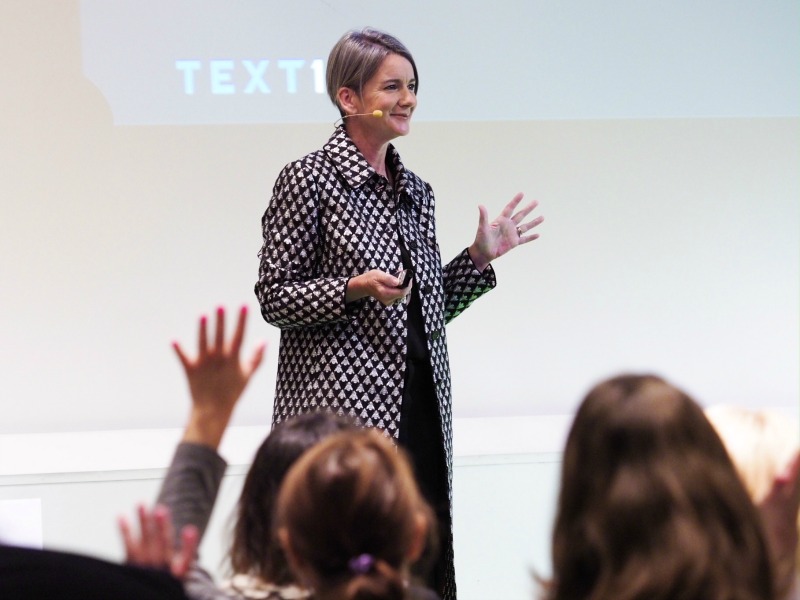Diana Marszalek 06 Apr 2018 // 12:46AM GMT

NEW YORK — Roughly a decade since its last self-assessment, the Arthur W. Page Society is responding to the rapid and rampant changes in the communications industry it serves by expanding its purpose and offerings, while also attempting to revamp its image.
“The power of communications (can be used) to shape the world,” said Text100 CEO and Page Society chair Aedhmar Hynes. “That kind of effort takes courage. So it seems fitting that we create a community of communicators where we can summon that courage.”
Speaking Thursday at the society’s spring seminar, the organization’s hallmark annual event, Hynes debuted the organization’s newly expanded purpose and positioning, part of the group’s new strategy to be more global, diverse and inclusive. Also unveiled was a new brand; Although the organization will formally retain its existing name, it will now more often be referred to simply as Page.
In particular, the association is aiming to modernize in line with a stated purpose to be “a place to come together, remember the principles that guide us through turbulent times and provide inspiration to do more,” Hynes said.
Page’s new Learning Labs, for instance, include online courses covering topics such as data and analytics and building teams that drive transformation, while giving senior communicators access to resources, as well as each other’s thoughts and insights. Page plans to harness technology to open up its services to communicators outside New York.
Leaders also expect the new strategy to infuse its thought leadership, so that its programs are relevant today while also helping prepare communicators for the future. Page’s new podcasts make that material available worldwide.
Hynes said the initiative comes after in-depth discussions with members, which involved delving into the multitude of challenges facing communicators, from technology to changing consumer expectations — all of which are hitting as people in the industry are increasingly being called on to rally stakeholders around ideas like purpose, trust and values.
“The communications industry has never been more relevant and more necessary,” she said. “We need to lead the way in challenging perceptions and embracing points of view.”


































.jpg)

















